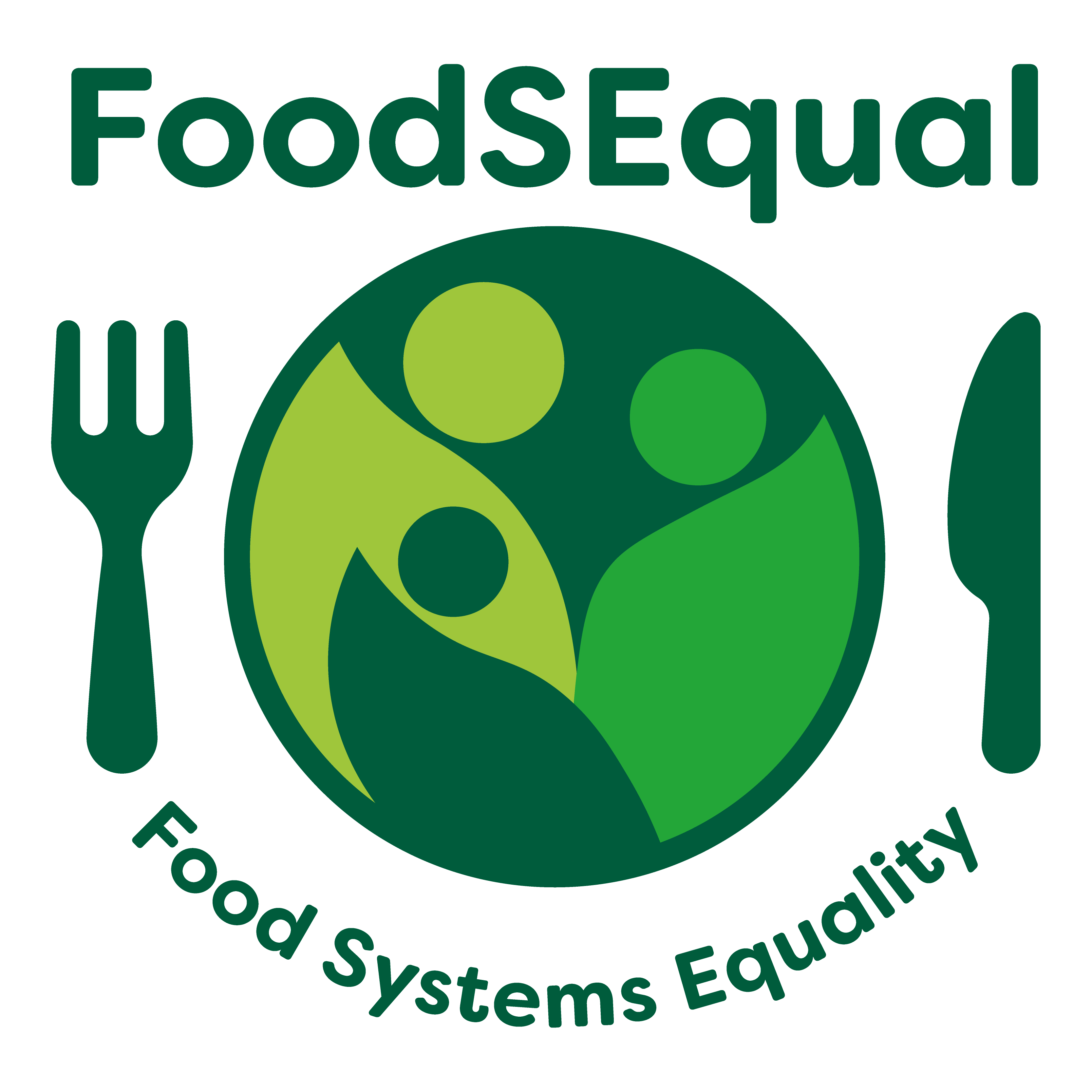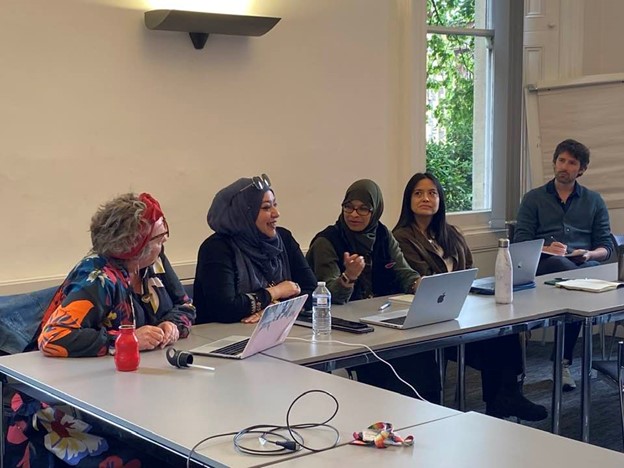The Tower Hamlets team attended the Food Justice Network meeting at the University of Bristol in May 2024 to share their FoodSEqual research.
In May the community researchers from FoodSEquals’ Tower Hamlets partners, Wen, (Sajna Miah and Shazna Hussain), Julie Yip from Wen and Elaine Swan from the University of Sussex presented their research methods to the Food Justice Network at the University of Bristol. The Food Justice Network is made up of Bristol University staff and post graduate students, and those from the Bristol area, undertaking critical and impactful research that addresses unequitable and unsustainable food systems. They are also connected with the University of Bristol Cabot Institute for the Environment.
Dr Lydia Medland explained that they were ‘particularly interested in the how questions (methodology, co-production etc.) and in any big findings or thoughts about the food system.’
For the CRs, this hybrid event was an opportunity to revisit their paper from the Helsinki Conference in January without the limitations of a 15-minute time slot.
Elaine gave a background to the project and then Julie talked about her methodology and how local residents took part in a food photography course, she showed some of the resulting photographs of the cultural food people ate. The audience then asked questions about the method.
Shazna described how we trialed the Shopalong method before rolling it out to our participants: ‘I spoke about the thoughts that went through my head and the questions that were asked whilst I was carrying out the method. I explained how this helped me to share my thoughts with Elaine and Sajna so it made us aware of what and how the participant may be feeling.’
Sajna introduced the Cookalong method, and how important the initial trial was ‘This would give us a better insight into how our participants may feel with us following them around or in their homes asking questions that are personal. I spoke about how I felt with a camera in my small kitchen and with Elaine and Shazna asking questions. Explaining why we choose to trial out our methods on ourselves first would help give a better understanding to our audience at the university. We also touched on how we felt it was important to build a trusting relationship with our participants.’
There were lots of good questions raised, we were asked about the downsides or challenges with PAR and how we overcame these, whether we pay people and what did our research make us think about ethics. ‘We were asked how we manage to recruit and again it was through building that relationship with the community and explaining to them about our experience as a participant. Both Shazna and I are bilingual, and those skills really helped to develop that relationship and build the trust.’
The presenters and our hosts from the university continued the discussion over lunch. In a follow up email, a Sociology, Politics and International Studies PhD Researcher felt that the talk ‘was a brilliant example of co-production and participatory methods.’


